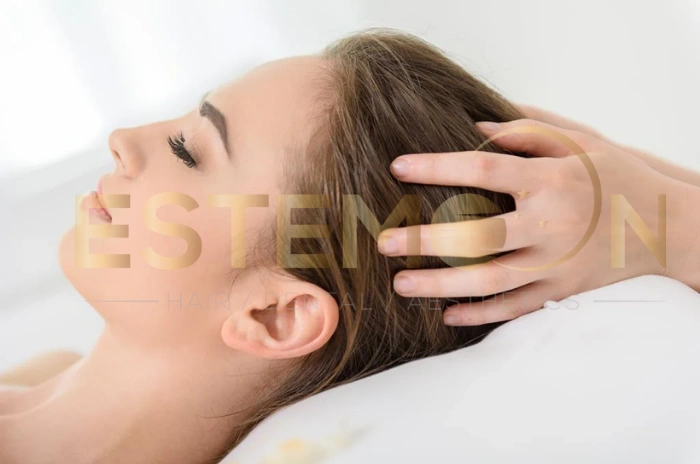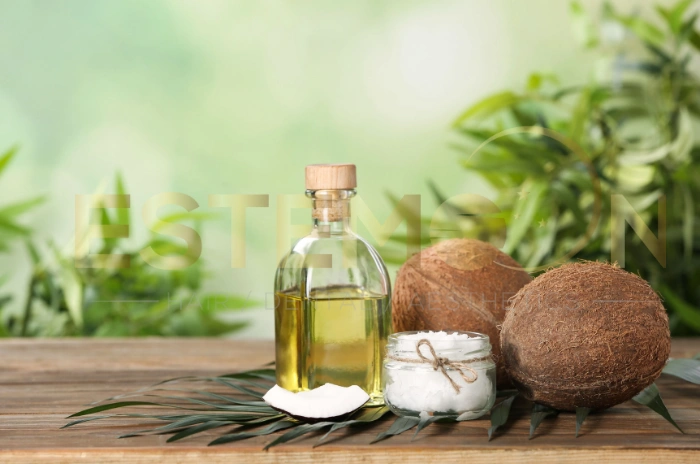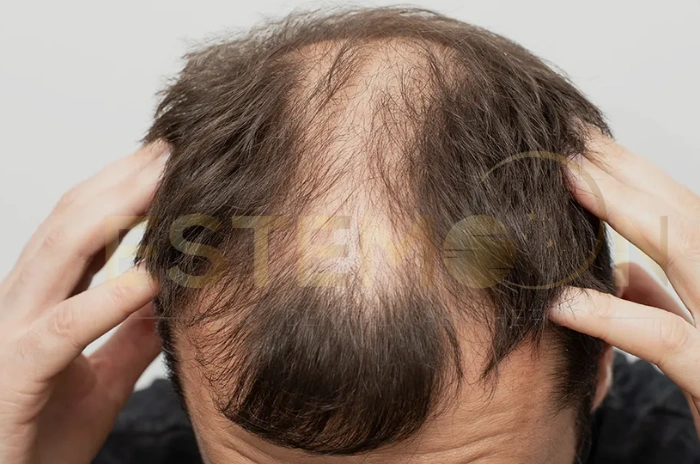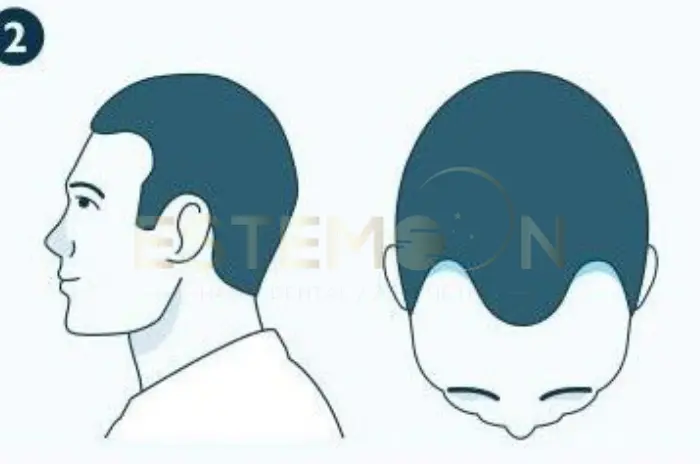Coconut oil for hair growth has become one of the most popular natural remedies in hair care routines worldwide. This versatile oil, extracted from mature coconuts, contains unique properties that can significantly impact hair health and appearance. Rich in lauric acid and medium-chain fatty acids, virgin coconut oil penetrates deep into hair shafts, providing nourishment from within.
Many people struggle with hair thinning, breakage, and slow growth due to various factors including stress, poor nutrition, and environmental damage. Coconut oil for hair growth offers a natural solution that addresses multiple hair concerns simultaneously. Understanding how to use coconut oil for hair properly can transform your hair care routine and deliver visible results.

What coconut oil can and cannot do for hair growth
Coconut oil for hair growth works primarily by creating optimal conditions for healthy hair development rather than directly stimulating new follicle formation. The oil’s molecular structure allows it to penetrate hair cuticles effectively, strengthening existing hair strands and preventing breakage that can make hair appear thinner.
What coconut oil can accomplish includes reducing hair protein loss, moisturizing dry scalp conditions, and protecting hair from environmental damage. The lauric acid hair benefits include antimicrobial properties that help maintain scalp health, creating an environment conducive to healthy hair growth.
However, coconut oil for hair growth cannot reverse genetic hair loss patterns or treat medical conditions like alopecia. While it strengthens existing hair and may help retain length by preventing breakage, it won’t create new hair follicles where none exist.
How coconut oil helps split ends and breakage
Coconut oil for split ends works by sealing the hair cuticle and providing a protective barrier against further damage. The moisturizing properties of coconut oil help smooth damaged cuticles and prevent splits from traveling further up the hair shaft.
Cold-pressed coconut oil retains more natural nutrients compared to processed versions, making it more effective for treating damaged hair. The oil’s ability to reduce hair breakage stems from its moisturizing properties and capacity to improve hair elasticity.
For best results, apply warm coconut oil benefits to mid-lengths and ends, avoiding roots. Leave for 30 minutes before washing with mild shampoo. This DIY coconut oil hair treatment helps repair existing damage while preventing future breakage.
The Science Behind Coconut Oil and Stronger Hair Follicles
Coconut oil for scalp health and stronger hair follicles lies in the oil’s unique composition and effects on the scalp environment. Research shows that coconut oil’s antimicrobial properties help maintain a healthy scalp microbiome, essential for optimal hair follicle function.
Lauric acid hair benefits extend beyond surface conditioning to actual follicle support. This medium-chain fatty acid can penetrate the hair shaft and potentially reach follicle areas, helping reduce inflammation and provide nourishment. Stronger hair follicles produce more resilient hair strands less prone to breakage.

How Coconut Oil Massage Improves Scalp Blood Circulation
Coconut oil massage for hair provides dual benefits through physical massage action and the oil’s penetrating properties. Gentle pressure during massage stimulates blood vessels beneath the scalp, increasing circulation to hair follicles.
The warming effect of warm coconut oil benefits during massage further enhances circulation. When gently heated before application, it creates a soothing sensation that helps relax scalp muscles and dilate blood vessels. This hair growth treatment at home approach supports natural hair growth cycles.
| Massage Technique | Duration | Benefits |
|---|---|---|
| Circular motions with fingertips | 5-10 minutes | Improved circulation, stress relief |
| Gentle pressure across scalp | 3-5 minutes | Blood vessel stimulation |
| Wide tooth comb application | 2-3 minutes | Even oil distribution |
The Role of Coconut Oil in Reducing Hair Protein Loss
Reduce protein loss hair treatments often center around coconut oil due to its unique ability to penetrate hair shafts and prevent essential proteins from washing away. Hair is primarily composed of keratin protein, and when lost through washing and styling, hair becomes weak and prone to damage.
Studies show coconut oil for hair growth is more effective than other oils at preventing protein loss during washing. The oil’s affinity for hair proteins allows it to bind with them, creating a protective barrier that remains after shampooing.
Coconut oil hair mask treatments are especially effective for protein loss prevention. When left on hair for extended periods, the oil has more time to penetrate deeply and bind with hair proteins, maintaining hair strength over time.
Combining Coconut Oil with Other Natural Growth Boosters
Ayurvedic hair oil traditions often combine coconut oil with other natural ingredients to enhance hair growth benefits. Popular combinations include coconut oil with curry leaves for follicle strengthening, and coconut oil with fenugreek seeds for protein content.
Rosemary essential oil mixed with coconut oil for hair growth creates a potent combination for circulation improvement. When combined with coconut oil’s moisturizing and protein-protecting properties, this blend offers comprehensive hair care benefits.
| Natural Ingredient | Primary Benefit | Combination Ratio |
|---|---|---|
| Rosemary Oil | Circulation boost | 5 drops per tbsp coconut oil |
| Curry Leaves | Follicle strengthening | 10-15 leaves per 1/4 cup oil |
| Castor Oil | Hair thickening | 1:1 ratio with coconut oil |
| Aloe Vera Gel | Scalp soothing | 2 tbsp gel per 1 tbsp oil |
Coconut oil versus other hair oils for growth support
Coconut oil vs other hair oils comparison reveals unique advantages that make coconut oil particularly effective for hair growth support. Unlike heavier oils such as castor or olive oil, coconut oil has lighter molecular weight allowing better penetration without leaving hair greasy.
Virgin coconut oil offers deep penetration and protective benefits that other oils cannot match. When comparing best coconut oil for hair options, virgin coconut oil retains more beneficial compounds including antioxidants and natural vitamins supporting hair health.
Cold-pressed coconut oil represents the highest quality option, as extraction methods preserve all natural nutrients and beneficial compounds. This processing ensures the oil retains antimicrobial properties and vitamin content.
| Oil Type | Penetration Level | Best For | Molecular Weight |
|---|---|---|---|
| Virgin coconut oil | Deep | Overall hair health | Light |
| Argan oil | Surface | Shine and smoothness | Medium |
| Castor oil | Moderate | Hair thickness | Heavy |
| Jojoba oil | Light | Scalp balance | Light |
Application Guidelines
Proper how to use coconut oil for hair application significantly impacts results. Start with clean, slightly damp hair for better absorption. Apply oil systematically from ends toward roots.
For overnight treatment guidance, protect pillows with towels. While overnight treatments provide maximum penetration, even 30-60 minute treatments prove effective. Always wash with mild shampoo after oiling to remove excess without stripping beneficial residue.
FAQs About Coconut Oil for Hair Growth Benefits and Uses
What can coconut oil do for hair growth?
Coconut oil for hair growth strengthens existing hair, reduces breakage, prevents protein loss, and creates optimal scalp conditions for healthy hair development.
How does coconut oil prevent hair protein loss?
The oil’s molecular structure allows it to penetrate hair shafts and bind with proteins, creating a protective barrier preventing essential proteins from washing away.
Does coconut oil help with split ends?
Coconut oil for split ends seals damaged cuticles, provides moisture to prevent further splitting, and smooths existing damage with regular use.
Is coconut oil better than other hair oils?
Coconut oil vs other hair oils shows superior penetration abilities, protein-binding properties, and antimicrobial benefits making it particularly effective for comprehensive hair care.
Follow us on social media for updates, tips, and patient success stories:




